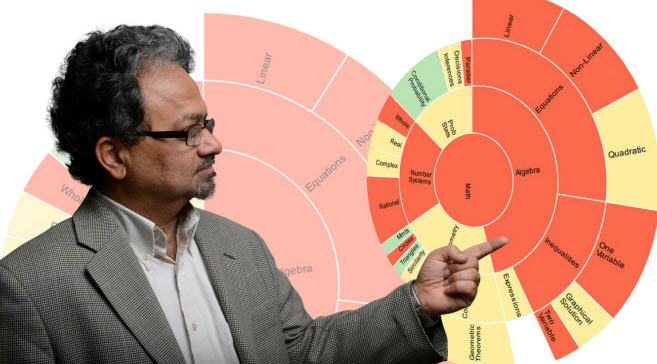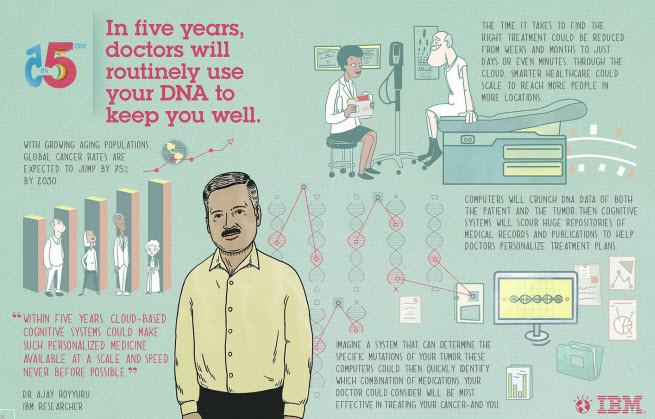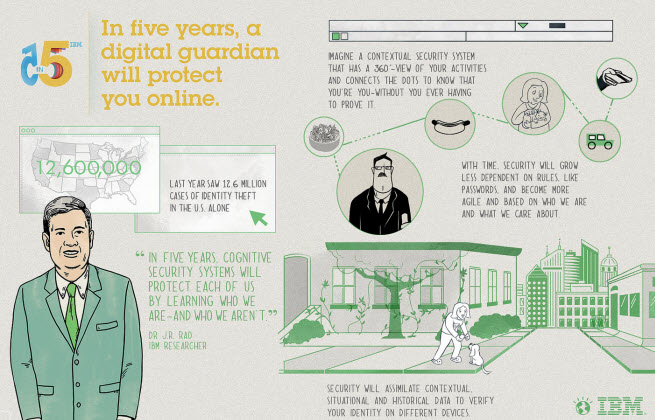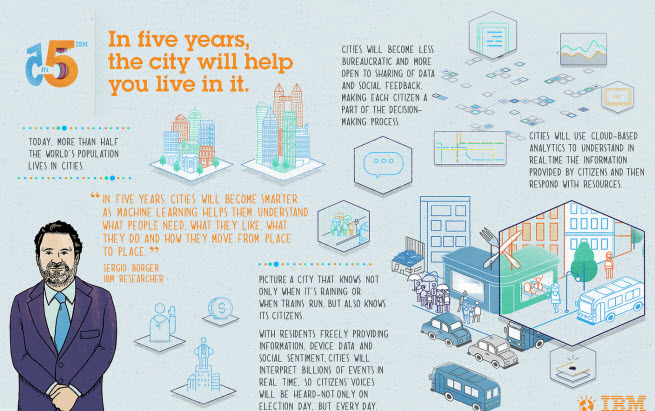Doctors will use your DNA to keep you well
Global cancer rates are expected to jump by 75 percent by 2030. IBM wants computers to help doctors understand how a tumor affects a patient down to their DNA. They could then figure out what medications will best work against the cancer, and fulfill it with a personalized cancer treatment plan. The hope is that genomic insights will reduce the time it takes to find a treatment down from weeks to minutes.
“The ability to correlate a person’s DNA against the results of treatment with a certain protocol could be a huge breakthrough,” Meyerson said. It’ll be able to scan your DNA and find out if any magic bullet treatments exist that will address your particular ailment.
IBM recently made a breakthrough with a nanomedicine that it can engineer to latch on to fungal cells in the body and attack them by piercing their cell membranes. The fungi won’t be able to adapt to these kinds of physical attacks easily. That sort of advance, where the attack is tailored against particular kinds of cells, will be more common in the future.
A digital guardian will protect you online
We have multiple passwords, identifications, and devices than ever before. But security across them is highly fragmented. In 2012, 12 million people were victims of identity fraud in the U.S. In five years, IBM envisions a digital guardian that will become trained to focus on the people and items it’s entrusted with. This smart guardian will sort through contextual, situational, and historical data to verify a person’s identity on different devices. The guardian can learn about a user and make an inference about behavior that is out of the norm and may be the result of someone stealing that person’s identity. With 360 degrees of data about someone, it will be much harder to steal an identity.
“In this case, you don’t look for the signature of an attack,” Meyerson said. “It looks at your behavior with a device and spots something anomalous. It screams when there is something out of the norm.”
The city will help you live in it
IBM says that, by 2030, the towns and cities of the developing world will make up 80 percent of urban humanity and by 2050, seven out of every 10 people will be a city dweller. To deal with that growth, the only way cities can manage is to have automation, where smarter cities can understand in real-time how billions of events occur as computers learn to understand what people need, what they like, what they do, and how they move from place to place.
IBM predicts that cities will digest information freely provided by citizens to place resources where they are needed. Mobile devices and social engagement will help citizens strike up a conversation with their city leaders. Such a concept is already in motion in Brazil, where IBM researchers are working with a crowdsourcing tool that people can use to report accessibility problems, via their mobile phones, to help those with disabilities better navigate urban streets.
Of course, as in the upcoming video game Watch Dogs from Ubisoft, a bad guy could hack into the city and use its monitoring systems in nefarious ways. But Meyerson said, “I’d rather have the city linked. Then I can protect it. You have an agent that looks over the city. If some wise guy wants to make the sewage pumps run backwards, the system will shut that down.”
The advantage of the ultraconnected city is that feedback is instantaneous and the city government can be much more responsive.
VentureBeat's mission is to be a digital town square for technical decision-makers to gain knowledge about transformative enterprise technology and transact. Learn More






